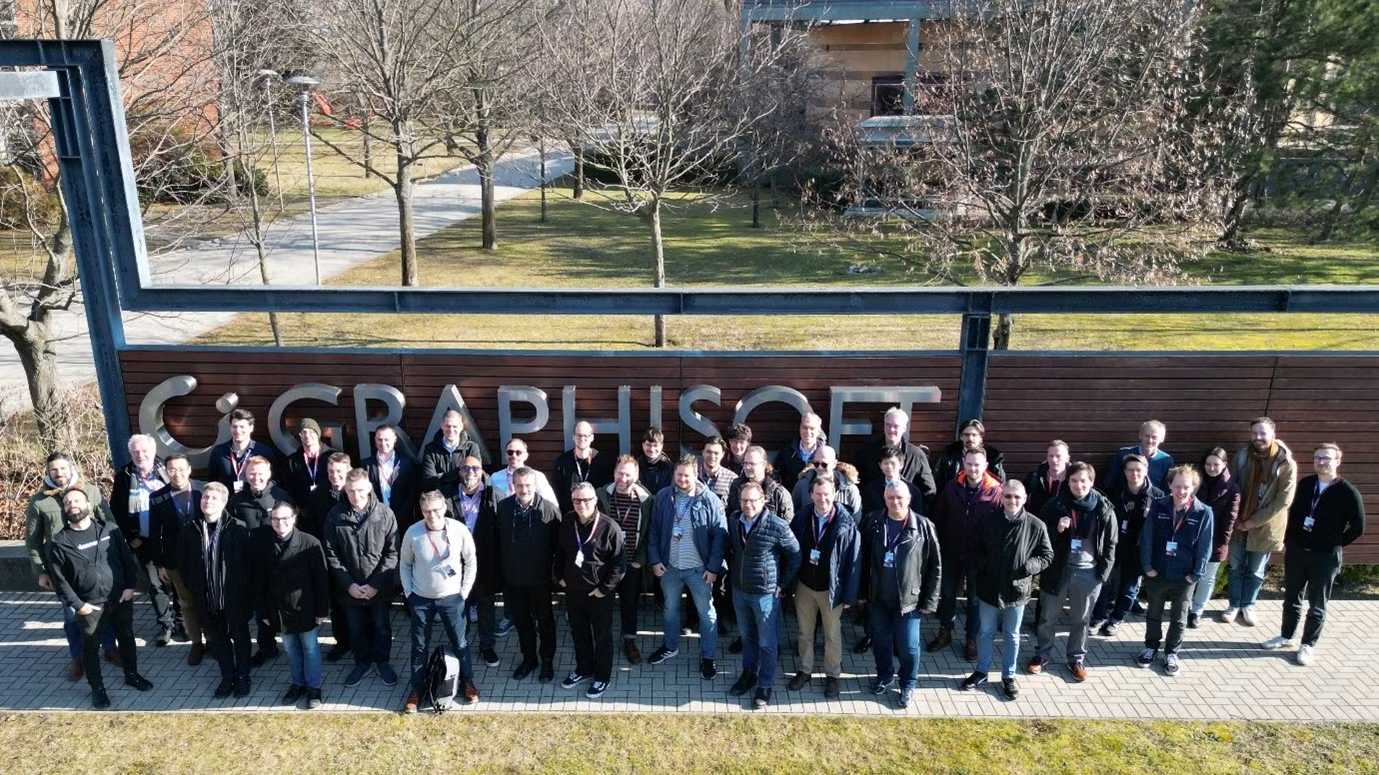Jason Ruddle, company director at Contech Digital Consulting, explores the critical aspects of the digital transformation journey and why construction companies will benefit from going “Paperless”
In today’s rapidly evolving business landscape, digital transformation has penetrated virtually every sector, including commercial construction, infrastructure development, oil and gas, wind energy and manufacturing.
The adoption of digital technology has ushered in a new era of efficiency, productivity, and sustainability, reshaping how these industries operate.
As an independent consultant, Jason Ruddle plays a pivotal role in helping businesses harness the power of digital transformation by providing valuable advice, mentoring, and strategic guidance.
The digital transformation landscape
Digital-first is not merely a buzzword; it’s a fundamental shift in how businesses function.
It involves harnessing digital tools and technologies to streamline processes, enhance communication, and drive innovation.
Automating repetitive tasks and business processes is a crucial aspect of digital transformation.
Successful digital transformation requires a cultural shift within organisations. This involves fostering a mindset of innovation, collaboration, and adaptability among employees.
Companies increasingly collaborate with external partners, startups, and other ecosystem players to harness collective capabilities and drive innovation.
SaaS is crucial in providing the scalable and flexible infrastructure needed for digital transformation initiatives. It allows companies to adapt quickly to changing demands and deploy resources as needed.
Adapting to evolving regulatory environments is a key consideration in the digital transformation landscape, especially in industries with strict compliance requirements. The landscape is dynamic and continually evolving as technology advances and market conditions change.
Organisations successfully navigating this landscape are better positioned to thrive in the digital age.
Paperless: A paradigm shift
One of the key elements of this transformation is the concept of going “Paperless.”
This approach aims to eradicate paper-based systems from daily operations, substituting them with digital processes that seamlessly integrating site and office teams.
The heart of Paperless adoption lies in the use of cloud-based platforms, which provide instant access to live data, reporting, and data insights.
What are the benefits of going paperless?
Let’s delve into why this shift is critical and its benefits.
-
Efficiency and productivity
One of the most significant advantages of embracing digital processes is the substantial boost in efficiency and productivity.
Digital tools streamline tasks, reduce manual handling, and eliminate paperwork bottlenecks plaguing industries.
This transformation allows employees to shift their focus from mundane administrative tasks to value-added activities. The result is faster project completion and increased productivity across the board.
-
Real-time accessibility and collaboration
Digital systems empower professionals to access critical documents, data, and information from virtually anywhere.
This real-time accessibility breaks down geographical barriers, enabling quicker decision-making, collaboration, and problem-solving.
Whether in the office, on the construction site, or travelling for pleasure or business, accessing live data can be a game-changer for project management and general team communication.
Collaboration becomes dynamic, leading to quicker decision-making and problem-solving.
-
Environmental Impact
Beyond efficiency gains, the shift to paperless operations offers a compelling environmental benefit.
Transitioning from paper to digital drastically reduces the need for paper production, printing, and transportation, effectively decreasing the carbon footprint associated.
This eco-friendly approach aligns with global efforts to promote sustainability and minimize environmental impact. Transitioning to low-carbon technologies and practices can lead to cost savings in the long run.
The Government and international bodies are increasingly implementing regulations to limit carbon emissions. Businesses and individuals that reduce their carbon footprint are more likely to comply with existing and future environmental standards.
-
Data insights and analytics
Digital processes generate vast amounts of data that can be harnessed for insights and informed decision-making.
Analytics tools are instrumental in identifying bottlenecks, trends, and opportunities for optimization. By leveraging data-driven insights, commercial construction, infrastructure, and manufacturing businesses can drive continuous improvement and adapt to changing market dynamics with agility.
-
Security, compliance and continuous improvement
SaaS providers prioritise data security, often implementing robust encryption and compliance measures.
This is especially crucial in an industry where sensitive project data and client information must be safeguarded.
SaaS solutions ensure data is stored securely, reducing the risk of breaches or data loss. Platforms are continually updated with the latest features and enhancements. This ensures that companies have access to cutting-edge technology without needing constant reinvestment.
The iterative nature of SaaS fosters a culture of innovation and continuous improvement within industries such as construction.
Who are these SaaS Innovators?
In his first independent consultancy role, Jason Ruddle advises Raymond Castelyn, a Chartered Civil Engineer with over 20 years of experience in construction project management and digital transformation.
Throughout his career, Raymond has gained extensive expertise in various industries, including rail, marine, highways, renewable energy, and construction tech.
Raymond is the founder and CEO of Paperless Construction, where he is dedicated to promoting safer working environments and contributing to a more sustainable future for his clients.
The Compliance Management App was built by a team of experts from the construction industry in the UK to make compliance management simple, fast and easy.
Reflecting the variety of ways that teams work across the industry today, the app ensures you can meet all your health and safety compliance requirements and tasks throughout the day whilst remaining in touch with the team.
This is a step change for many businesses, but with a CEO who has hands-on experience, Raymond is supporting the journey with a controlled approach based on his hands-on experience.
Digital transformation is a necessary evolution
Digital transformation is a necessary evolution. As an independent consultant, your role in guiding businesses through this transformation is invaluable.
The shift to Paperless Construction, focusing on cloud-based platforms, is a clear path to reaping efficiency benefits, real-time accessibility, sustainability, and data-driven decision-making.
By embracing these digital advancements, businesses can remain competitive, agile, and environmentally responsible in an ever-changing world.
As industries embrace SaaS solutions, it sets the stage for long-term innovation and sustainability. And being biased towards construction, this sector’s journey into the digital realm is not just a trend; it’s a strategic imperative for staying relevant and resilient in a rapidly evolving business landscape.









![[VIDEO] Shaping the future of safety at the RSMA Annual Conference & Dinner 2025 Discover insights and highlights from the talks at RSMA Annual Conference & Dinner 2025 in Kenilworth with the team at Re-flow](https://www.pbctoday.co.uk/news/wp-content/uploads/2025/02/Re-flow-Shaping-the-Future-of-Safety-Media-218x150.jpg)




![[VIDEO] Why it’s time to digitalise your door inspections Digitalising your fire door inspections ensures increased efficiency and compliance- guaranteeing peace of mind for your company and clients](https://www.pbctoday.co.uk/news/wp-content/uploads/2024/09/JPZ_2347-2-XL_clean-B-218x150.jpg)